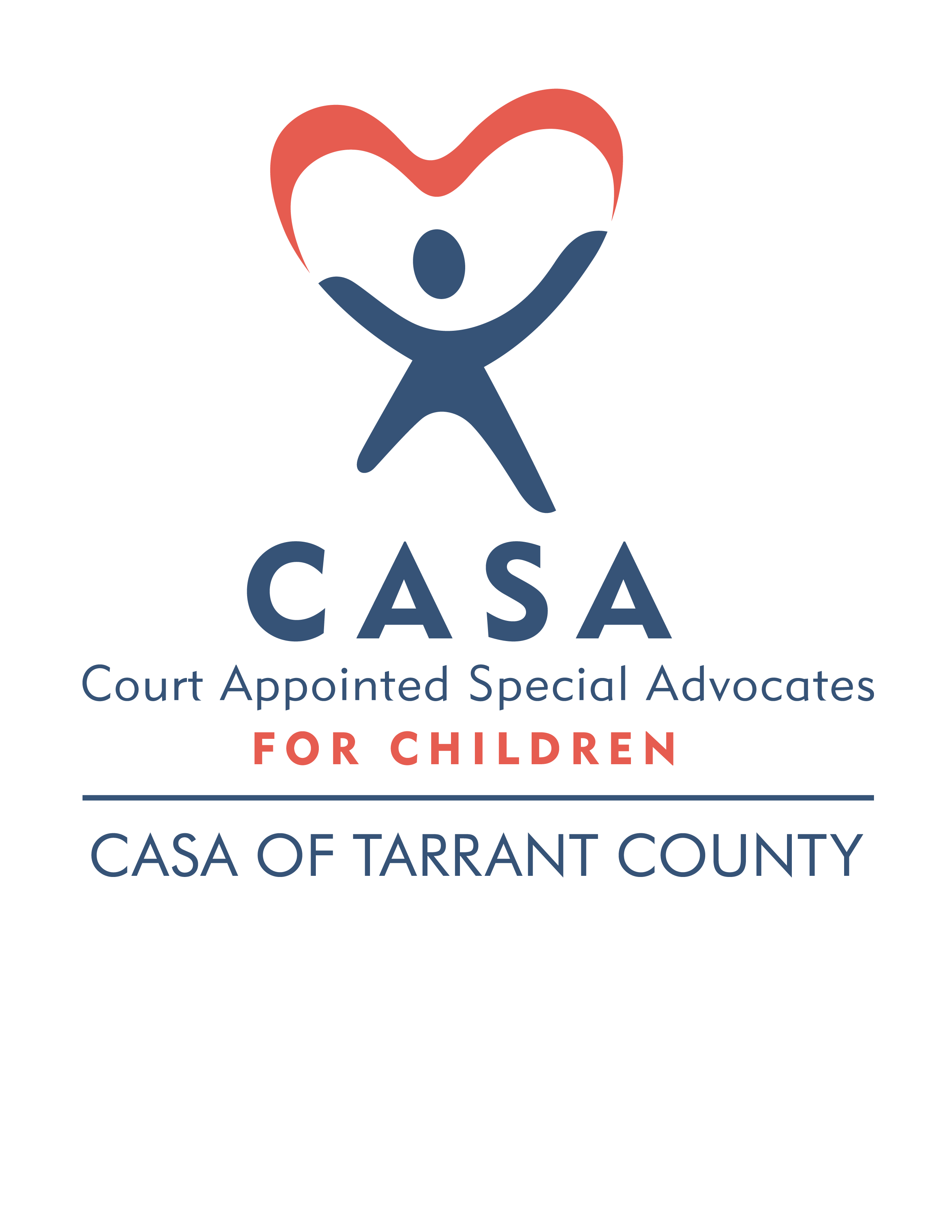CASA of Tarrant County – Creating new ways to support their children
Being creative and maintaining relevancy as a way to encourage and support the mental and emotional support for the children they serve is a primary focus for CASA of Tarrant County, a child welfare group that trains community members to serve as court appointed advocates for abused and neglected children.
In October of 2022 CASA (Court Appointed Special Advocates) launched the Black Hair Care Initiative supporting kids in foster care. The program is part of the group’s ongoing efforts to better serve children of color in the child welfare system. “When we think of kids in care, we’re usually focused on essentials like safety, food and shelter—but grooming is a basic need, too,” said Tracy Williams, a supervisor for CASA of Tarrant County. “Kids, especially teenagers, express their identity and draw much of their self-confidence via their appearance. Many Black /African American children in the foster system weren’t receiving hair care to begin with, and then they’re placed in care settings that are not equipped or trained to provide proper hair care,” says Williams.
To address this challenge, CASA of Tarrant County launched the Black Hair Care Initiative. They partnered with Our Kids Our Community, which provides case management for Tarrant County kids in care and Studio BW Salon & Barber in partnership with A King & Queen’s Palace Salon located at 902 S. Cedar Ridge Drive Duncanville, TX 75137. The event offered the opportunity for local kids in foster care to receive free professional styling services and products, as well as education that will help them better care for their own hair. Toshiba Hardman, owner and stylist at A King & Queens Palace Salon said, “The Summit was an awesome experience for me not only as a stylist but as a woman, a mother, and woman of God. The best part of the summit for me was the actual hands-on work, styling the young ladies to their liking. They chose what hair style they wanted, and we tried our best to deliver as well as converse with them about the insecurities that we as women go thru yet learn to conquer when it comes to our appearance. Knowing that the hairstyle plays such an important role in our appearance was one of the reasons I became a stylist. The young ladies left with totally different attitudes and vibes that evening. Smiles and giggles were what sealed the deal of an awesome summit.”
Williams says, “We don’t want any child or teen in care to feel less than, or to age out of the system and enter the world unprepared to care for themselves. Our hope is that people in the beauty industry will step up to support this initiative, and that people of all backgrounds will consider becoming part of CASA themselves to support our community’s most vulnerable kids.”
In 2021, more than 40% of confirmed victims of child abuse and neglect in Tarrant County were identified as Black, yet only a small percentage of CASA volunteers are similarly identified. Additionally, the organization has a chronic shortage of volunteers of all backgrounds, as about 600 kids each year are left waiting for an advocate. ““We cannot understate the need and importance for men to become involved and volunteer and support our children,” says Williams.
As part of bringing awareness through this initiative, CASA is also hoping to educate the community about the dire need for Black, Latino and male community members to consider training as a volunteer CASA for abused and neglected children and teens in the child welfare system where they are not adequately supported.
Natalie Stalmach, Development Director of CASA of Tarrant County said, “The Black Hair Care Initiative is an important part of CASA’s advocacy work that centers the unique needs of each child in foster care. By the time children get to foster care, they’ve already endured abuse or neglect and have been removed from their home, parents, extended family, friends, school, neighborhood and culture. When they go into a foster home, it’s unlikely to match their culture. We have seen children suffer from the upheaval this causes in their lives, and CASA’s goal in advocacy and special initiatives is to help ensure that children don’t completely lose access to vital pieces of their culture and identity. The black hair Care Initiative is part of a larger picture to provide for the needs of children. “
CASA is not just reaching out for barber and styling professionals who can assist with the program, they also are seeking support from professionals in all fields who can contribute, donate and or volunteer. Business owners who are not in the hair care industry can assist by purchasing hair care products for the children, making a donation or by opening and or volunteering their facilities for a Black Hair Care Summit.
Williams says CASA is working on other ways to elevate their support of Black children in foster care, besides the newly created Black Hair Care Initiative.
Stylists, retailers and beauty professionals who are interested, please contact Tracy.Williams@casatc.org or 817.877.5891 to find out how to support the Black Hair Care Initiative.
To learn more about being a CASA (volunteer child welfare advocate): Sign up to become a volunteer at an information session at SpeakUpForAChild.org
* * * * * * * * * * * * * * * * * * * *
About CASA of Tarrant County:
CASA (Court Appointed Special Advocates) of Tarrant County pairs trained, court-appointed volunteer advocates with children and teens who have been taken into custody by Child Protective Services, for the purpose of serving as the child or teen’s “voice” as they move through the family court system. In many cases, a CASA is the only consistent adult figure present during a confusing and frightening time in the life of a child who has already experienced significant trauma. Currently, CASA of Tarrant County has more than 400 active volunteers who come from all walks of life. Despite the impressive number of community members who have stepped up to speak up for a child, however, there are still about 600 kids each year who are left waiting for a CASA, because there aren’t enough volunteers to meet the needs.




